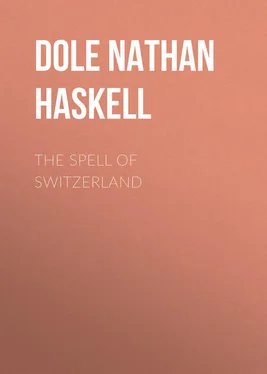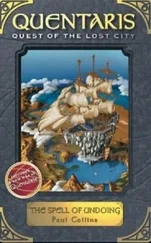Nathan Dole - The Spell of Switzerland
Здесь есть возможность читать онлайн «Nathan Dole - The Spell of Switzerland» — ознакомительный отрывок электронной книги совершенно бесплатно, а после прочтения отрывка купить полную версию. В некоторых случаях можно слушать аудио, скачать через торрент в формате fb2 и присутствует краткое содержание. Жанр: foreign_antique, foreign_prose, на английском языке. Описание произведения, (предисловие) а так же отзывы посетителей доступны на портале библиотеки ЛибКат.
- Название:The Spell of Switzerland
- Автор:
- Жанр:
- Год:неизвестен
- ISBN:нет данных
- Рейтинг книги:5 / 5. Голосов: 1
-
Избранное:Добавить в избранное
- Отзывы:
-
Ваша оценка:
- 100
- 1
- 2
- 3
- 4
- 5
The Spell of Switzerland: краткое содержание, описание и аннотация
Предлагаем к чтению аннотацию, описание, краткое содержание или предисловие (зависит от того, что написал сам автор книги «The Spell of Switzerland»). Если вы не нашли необходимую информацию о книге — напишите в комментариях, мы постараемся отыскать её.
The Spell of Switzerland — читать онлайн ознакомительный отрывок
Ниже представлен текст книги, разбитый по страницам. Система сохранения места последней прочитанной страницы, позволяет с удобством читать онлайн бесплатно книгу «The Spell of Switzerland», без необходимости каждый раз заново искать на чём Вы остановились. Поставьте закладку, и сможете в любой момент перейти на страницу, на которой закончили чтение.
Интервал:
Закладка:
A few months later the battle of Morat was fought; the duke was defeated and Lausanne was doubly sacked, first by the Comte de Gruyère and, a few hours later, by his allies, the Bernese troops, who spared neither public nor private edifices.
Just sixty years later Lausanne fell definitely into the hands of the Bernese, and they, by what seems an almost incredible revival of the judicial duel – only with spiritual instead of carnal weapons – ordered a public dispute on religion to decide whether Catholicism or Protestantism should be the religion of the city.
The comedian of the occasion seems to have been the lively Dr. Blancherose, who was constantly interrupting and interpolating irrelevant remarks, to the annoyance of the other disputants and to the amusement of the audience which packed the cathedral. On one occasion he declared that the word cephas was Greek and meant head; Viret replied that it was a Syriac word and meant stone. The Pope could have well dispensed with such an advocate.
The superiority of the Protestant debaters resulted in converting some of the opposite party, and the establishment of the Academy of Lausanne was the direct outcome of this debate, which was declared in all respects favourable to the Reformers.
The day after the decision was rendered, a crowd of bigots broke into the cathedral, overturned the altars and the crucifix, and desecrated the image of the Virgin. Workmen were paid for fifteen days at the rate of four and one sixth sous a day to clear Notre Dame of its altar-stones. And yet Jean François Naegueli (or Nägeli), when he took possession of Lausanne, had promised to protect the two Christian faiths.
It is a question whether one would rather live in those days under the easy-going régime of the superstitious Catholics or under that of the stern, forbidding bigotry of the Protestants. Geneva could not endure the latter and banished Farel and Calvin two years later; but back they came and established the tyranny more solidly than ever. Calvin drove Castellio out of Geneva, caused Jacques Gruet to be tortured and put to death, mainly because he danced at a wedding and wore new-fangled breeches, and had Servetus burned at the stake. It was a cruel age.
A cloud evidently passed over the face of the sun; the colours in the great rose window grew almost pallid. We left the church and again stood on the terrace.
“We are just about one hundred and fifty-two meters above the lake,” said Will. “Do you know, in the harbour of Geneva there are two big rocks which the early inhabitants of this region used to worship. They are granite, or protogen, and must have been brought down from some distant mountain, probably from the Saint-Bernard, by a glacier. In the old Roman days they were worshipped. On the top of one of them is a bronze plaque, put there in 1820 by General Dufour, and regarded as the standard, or rather the base, for all Swiss hypsometry. If you want to know how high above the level of the sea the Dent du Midi is, you will find it on the map ‘R. P. N.’ plus its height above the plaque. For instance the Cathedral here is R. P. N. plus a little more than one hundred and fifty-two meters. But the queer thing is that no two people who have tried to correct or verify General Dufour’s reckoning of the height of the plaque have been able to agree. General Dufour made it a fraction over three hundred and seventy-six meters and a half, which would give the level of the lake as three hundred and seventy-five meters; but it has since been corrected to a bit less than three hundred and seventy-three meters – a loss of almost ten feet.”
“What does that mean – that the scientists blundered?”
“It looks to me as if the whole level of the valley had perhaps settled. Every one knows that it is changing all the time – but come on, I want you to see the cathedral from the Place de Saint Laurent. It isn’t far from here.”
When we got there Will stopped and said:
“There! Isn’t that worth coming for? I wonder if there is any other cathedral in the world that has a more magnificent site.”
We paused for some time, looking up at its solid bulk, which seemed to touch the gathering clouds.
“I brought you here especially,” continued Will, “because one of Switzerland’s few poets praises its aspect from this spot. He says something like this: ‘It is a great crag fixt there. Contemplate it when heavy clouds are passing over. Standing below it and letting your eye follow the radiant field which creeps up to its flanks, you imagine that it grows larger amid the wild clouds which it tears as they fly over, leaving it unshaken. You might believe yourself in some Alpine valley, over which towers a solitary peak while around it cluster the mists driven by the wind.’ He grows still more enthusiastic at the beauty of it when the chestnut-trees are in bloom, contrasting with the violet roofs below and surrounded by the azure aureole of the lake and the mountains and he speaks of its ‘graceful energy’ against the golden background.”
“Who is the poet?” I asked.
“Oh, Juste Olivier. I will introduce you to him some day – I mean to his works. He himself died in 1876, if I am not mistaken. I have the two volumes which his friends edited as a sort of memorial to him.”
“I didn’t suppose there were any Swiss poets – I mean great Swiss poets. Of course I know Hebel – ”
“Yes, back in Gibbon’s time, the society founded by his friend Deyverdun discussed the question, ‘Why hasn’t the Pays de Vaud produced any poets?’ Juste Olivier deliberately set to work to fill the gap.”
“Did he succeed? He is not much known outside of Switzerland, is he?”
“Probably not; you shall see for yourself. But I remember one stanza on Liberty which has a fine swing to it —
“‘La Liberté depuis les anciens ages
Jusqu’à ceux où flottent nos destins
Aime à poser ses pieds nus et sauvages
Sur les gazons qu’ombragent nos sapins.
Là, sa voix forte éclate et s’associe
Avec la foudre et ses roulements sourds.
Nous qui t’aimons, Helvétie, Helvétie,
Nous qui t’aimons, nous t’aimerons toujours.’
“That is a fine figure – Liberty loving to set her foot on the soil shaded by the Swiss pines, – and so is that of Helvetia mingling her voice with the rolling of the thunder. That stanza has been praised as one of the finest of the century.”
As we leisurely strolled homeward my nephew called my attention to the northern slope of the Flon, just beyond the magnificent bridge, Chauderon-Montbénon. “That,” he remarked, “is called Boston.”
“Why is that?”
“I don’t know, unless to commemorate the fact that Lausanne is built on three hills. The north part was called La Cité, that to the south was le Bourg – the Rue du Bourg was the court end of the town, and had especial privileges – and the western side was called Saint-Laurent. It was only a little town when Gibbon came here to live; but it had unusually good society and there was a great deal of wealth, as you can imagine from the fine old houses.”
“Where did they get their money?”
“A good many of them through fortunate speculation. The men used to seek service in foreign countries. It is surprising how many of them became tutors to royal or princely families, or, if they were trained in the profession of arms, got commissions as officers in Russia, France, Spain and Holland. Some of them even went to India and America. A good many of them returned, if they returned at all, with handsome fortunes.”
“Isn’t it strange that a country which is always supposed to stand for liberty and patriotism should, next the Hessians, furnish the very best type of the mercenary! For a hundred years the French kings had to protect themselves with a Swiss guard, and the Pope’s fence of six-footers have been recruited from Lucerne and the Inner Cantons during more than four centuries.”
Читать дальшеИнтервал:
Закладка:
Похожие книги на «The Spell of Switzerland»
Представляем Вашему вниманию похожие книги на «The Spell of Switzerland» списком для выбора. Мы отобрали схожую по названию и смыслу литературу в надежде предоставить читателям больше вариантов отыскать новые, интересные, ещё непрочитанные произведения.
Обсуждение, отзывы о книге «The Spell of Switzerland» и просто собственные мнения читателей. Оставьте ваши комментарии, напишите, что Вы думаете о произведении, его смысле или главных героях. Укажите что конкретно понравилось, а что нет, и почему Вы так считаете.












